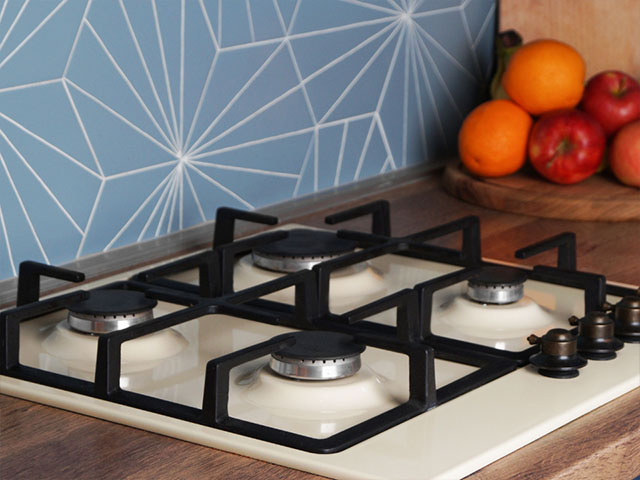Signs Your Cooktop Needs Attention
To decide whether to repair or replace your cooktop, first identify the warning signs that it’s not functioning properly. Here are the most common indicators:
- Uneven Heating: If burners don’t heat evenly, your meals may cook improperly, signaling issues with electrical connections or gas flow.
- Physical Damage: Cracks, chips, or other visible damage to the surface may compromise safety and efficiency.
- Unresponsive Controls: Knobs or touch controls that fail to work properly often indicate electrical problems or worn-out components.
- Strange Noises or Smells: Clicking sounds, gas leaks, or burnt odors point to mechanical or safety issues.
- Frequent Repairs: If you’re repeatedly calling for appliance repair services, it may be more cost-effective to replace the cooktop.
Table of Contents
When to Opt for Repairs

Minor Electrical or Gas Issues
When a burner fails to ignite or heats unevenly, the problem is often caused by a faulty igniter, wiring, or gas connection. These issues are generally straightforward and affordable to fix with the help of a professional technician. Prompt cooktop repair services not only restore performance but also prevent potential safety hazards in your kitchen.
Faulty Controls
Unresponsive knobs or malfunctioning touch controls can disrupt your cooktop’s usability. Replacing or recalibrating these components is usually a simple fix that doesn’t require replacing the entire appliance. Restoring control functionality ensures convenience and safety during everyday cooking.
Under Warranty
If your cooktop is under warranty, repair costs may be fully or partially covered, reducing financial strain. Manufacturer warranties often cover common defects or malfunctions, making repairs a cost-effective solution. Always review warranty terms to confirm coverage before proceeding with repairs.
Durable Surface Materials
When the cooktop surface is made of durable materials like tempered glass or stainless steel, minor damage is often superficial. Professional resurfacing can effectively address scratches or discoloration, restoring the appliance’s aesthetic appeal. This approach preserves the structural integrity and extends the lifespan of your cooktop.

Reasons to Replace Your Cooktop
Age of the Appliance
Cooktops typically last between 10 to 15 years, and as they age, their efficiency and performance may decline. Replacing an old cooktop not only improves functionality but also ensures better energy efficiency, saving you money in the long run. An aging appliance may also be more prone to frequent breakdowns, making replacement a smarter investment.
Major Mechanical Issues
If repairs cost more than 50% of the price of a new cooktop, replacing it is often the most economical choice. Major mechanical issues, such as faulty wiring or broken burners, can quickly add up, making repairs less cost-effective. Replacing your cooktop with a new one ensures reliable performance and avoids ongoing repair costs.
Outdated Technology
Safety Concerns
Choosing the Right Replacement Cooktop
Types of Cooktops
- Gas Cooktops: Preferred for precise temperature control and high heat levels.
- Electric Cooktops: Known for even heating and easy cleaning, available in coil or smooth glass-top designs.
- Induction Cooktops: Offer fast heating, energy efficiency, and advanced safety features by using electromagnetic energy.

Size and Fit
Before purchasing a new cooktop, make sure it fits within your kitchen’s existing space, especially the countertop cutout. Common cooktop sizes typically range from 30 to 36 inches, so measure your countertop carefully to ensure a perfect fit. Additionally, check the installation requirements to ensure compatibility with your kitchen’s existing wiring and ventilation.
Energy Efficiency
Opting for an energy-efficient cooktop can significantly lower your utility bills while reducing your carbon footprint. Look for models that are ENERGY STAR certified, which indicates that the appliance meets high standards for energy savings. These cooktops use less power without sacrificing performance, making them a long-term investment for both your wallet and the environment.
Features and Controls
Environmental Considerations
Cost Comparison: Repair vs. Replacement
Expense | Repair | Replacement |
Average Cost | $100–$400 | $500–$3,000 |
Time Investment | 1–3 hours | 2–5 hours (including installation) |
Longevity | Extends appliance life by 2–5 years | 10–15 years with a new appliance |

Maintenance Tips for Longevity
Whether you repair or replace your cooktop, proper maintenance ensures optimal performance and extends its lifespan. Here are key maintenance tips:
- Clean Regularly: Wipe the surface and burners after each use to prevent residue buildup.
- Check Connections: Periodically inspect gas lines and electrical connections for leaks or damage.
- Avoid Abrasive Cleaners: Use non-abrasive cleaners to protect glass or ceramic surfaces from scratches.
- Keep Vents Clear: Ensure that ventilation and exhaust vents are free from obstruction to allow for proper airflow and prevent overheating.
- Maintain Seals: Regularly check and replace worn seals around burners or cooktop edges to ensure efficient performance and prevent heat loss.
- Schedule Professional Inspections: Regular appliance inspections by a professional from 5 Star Appliance Repair can identify potential issues before they become serious.
Final Thoughts
FAQs
How long do cooktops typically last?
Cooktops usually last between 10 to 15 years, depending on usage and maintenance. Regular care can help extend their lifespan.
Can a cooktop be repaired instead of replaced?
Yes, minor issues like faulty controls or electrical problems can often be repaired. If the damage is extensive, however, replacement might be more cost-effective.
How do I know if my cooktop is beyond repair?
If the repair costs exceed 50% of the price of a new cooktop, replacement may be the best choice. Frequent repairs or major mechanical issues also signal that it might be time for a new one.
What is the most energy-efficient cooktop option?
Induction cooktops are generally the most energy-efficient because they heat food faster and use less energy. Electric cooktops also offer good efficiency, especially if they are ENERGY STAR certified.
How can I properly dispose of my old cooktop?
Many appliance retailers offer recycling or trade-in programs for old cooktops. Alternatively, check with your local waste management service for eco-friendly disposal options.

